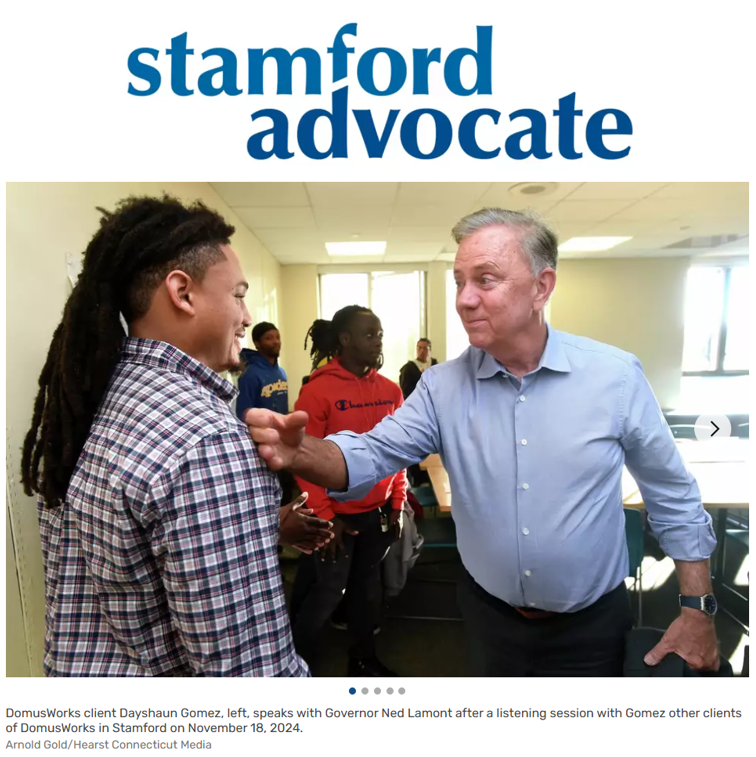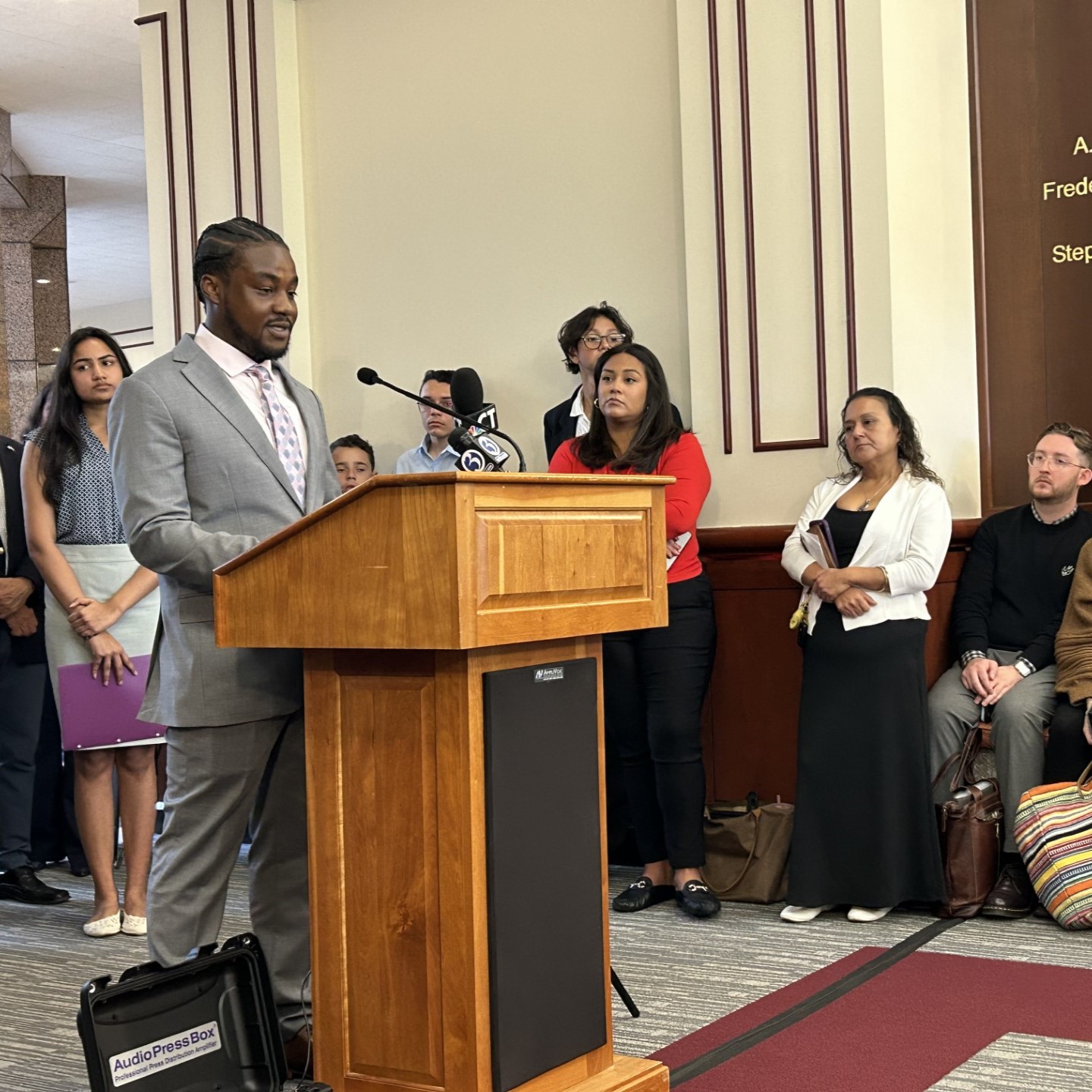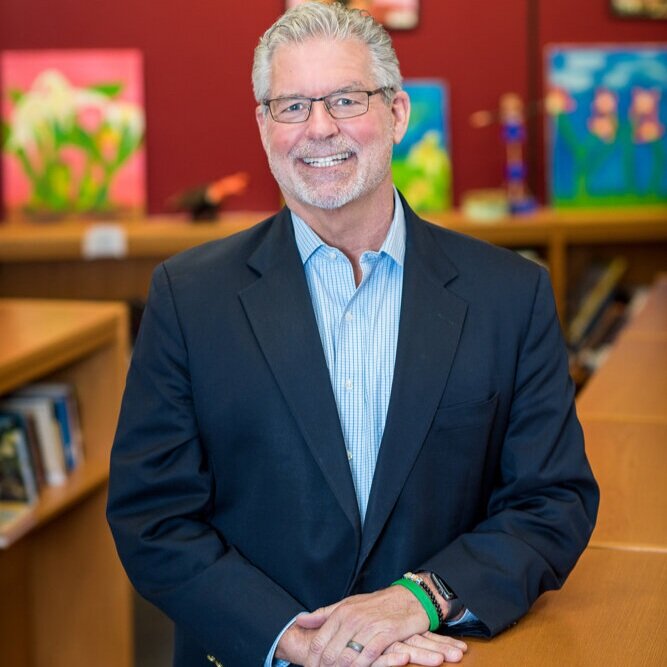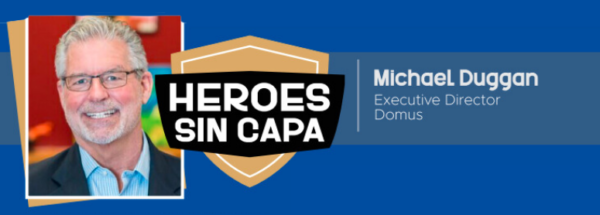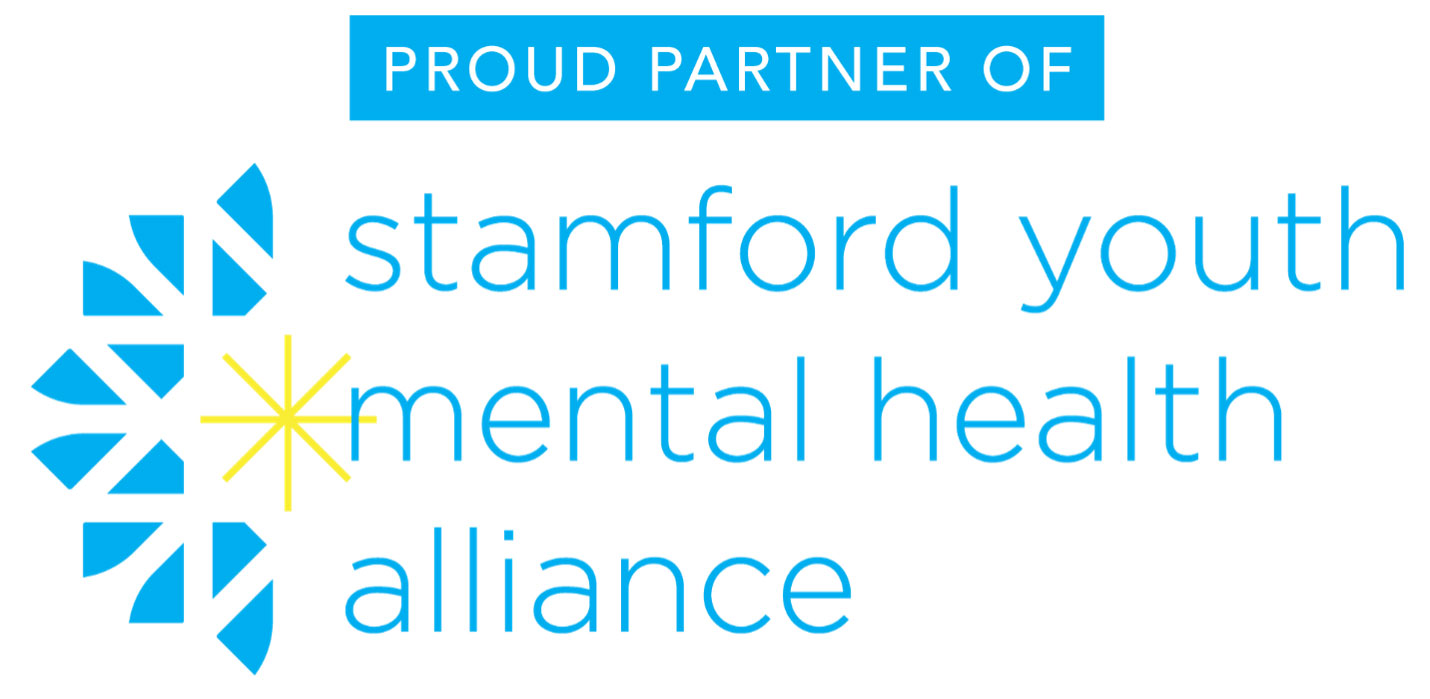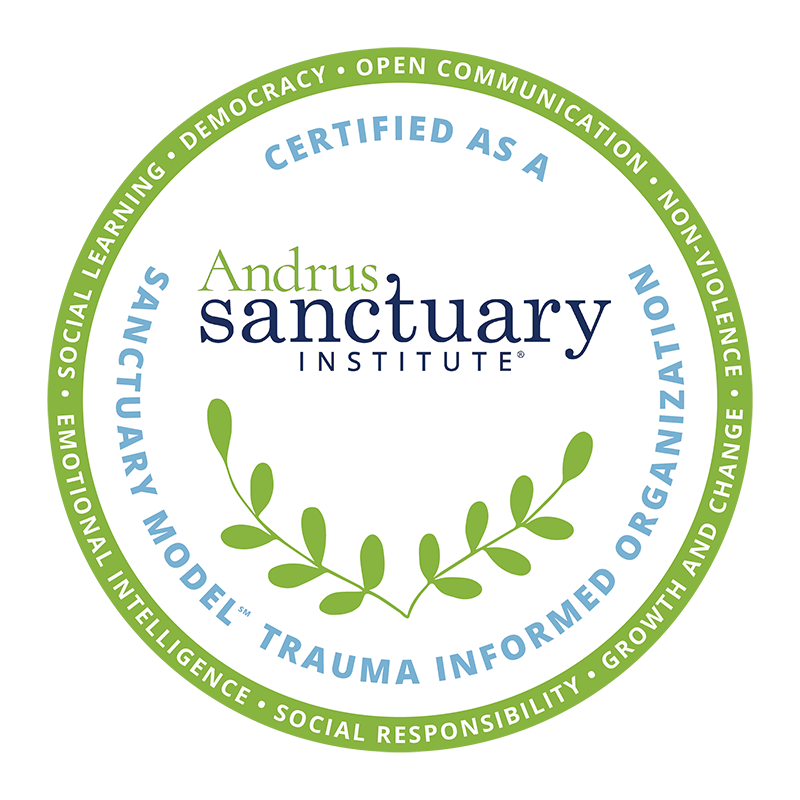‘We already did our time’: Stamford ex-felons struggle to find work; Lamont says don’t give up on CT
Pictured: DomusWorks youth Dayshaun Gomez, left, speaks with Governor Ned Lamont after a listening session with Gomez other clients of DomusWorks in Stamford on November 18, 2024. Credit: Arnold Gold/Hearst Connecticut Media
This is a reposting of an article by that appeared in the Stamford Advocate.
STAMFORD — Gov. Ned Lamont was in a room with 10 Connecticut residents — many with criminal records — on Monday afternoon listening to their struggles finding work.
By the end of it, the governor told the men he’d have members of his workforce team visit them to try to assist them with finding jobs.
“It’s just tragic to me that we have so many jobs unfilled and we have so many smart people sitting around the table who are ready to work,” Lamont said.
The state’s top elected official was at Domus in Stamford Monday afternoon. The organization works with mostly low-income youth and young adults between the ages of 12 to 26 in Stamford who struggle with school, have been recently incarcerated or are out of school with no stable work.
Lamont has toured similar facilities in other locations in the state in response to a recent report by the Connecticut Conference of Municipalities that studied how youth in Connecticut were disconnected from education and employment and offered a 10-year plan to address it.
The men Lamont met with are part of the DomusWorks program, a workforce development program for people between the ages of 17 and 26.
Many of the participants talked about the struggles they’ve faced finding work after being in jail.
Dayshaun Gomez asked the governor about loosening background checks from employers, many of whom have turned him down for work once they’ve discovered his criminal background.
“We already did our time so why do we have to do our time once we’re free?” Gomez asked.
Charles Razor, who has been part of the Domus program for about two years and is an ex-felon, said finding work has also been a challenge for him.
“It’s not easy when you’re really trying and no one is calling you back,” said Razor, who has been able to find employment with Uber Eats and Doordash. “We are trying. We all want better.”
Lamont’s message to the group was to stay in Connecticut.
“I’d like you to stay in Connecticut,” he said. “I can tell you that we need you. … We also need your skills to make sure that we keep things going.”
Many of the participants in the discussion mentioned housing and transportation as two major obstacles for staying in the state.
“It seems like we’re supposed to be born in this town, grow up in this town and move out as soon as we have the ability to,” said Scotty Bazile, a former member of the DomusWorks program, referring to the rising cost of living in the state.
Lamont said he and others in the state have to do better job of offering affordable housing and more dependable transportation for communities living in poverty, but also urged those in attendance to keep working hard.
“We’ve got a lot of work to do and so do you,” he said. “I can do a better job of getting a ladder here into Domus, but it’s up to you to climb.”
Link to full article HERE.

